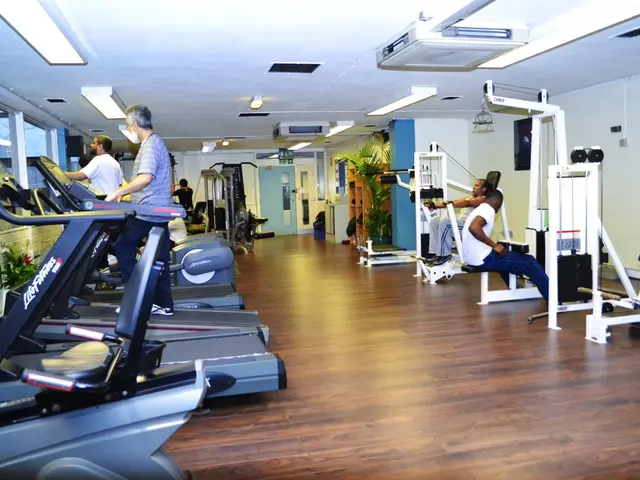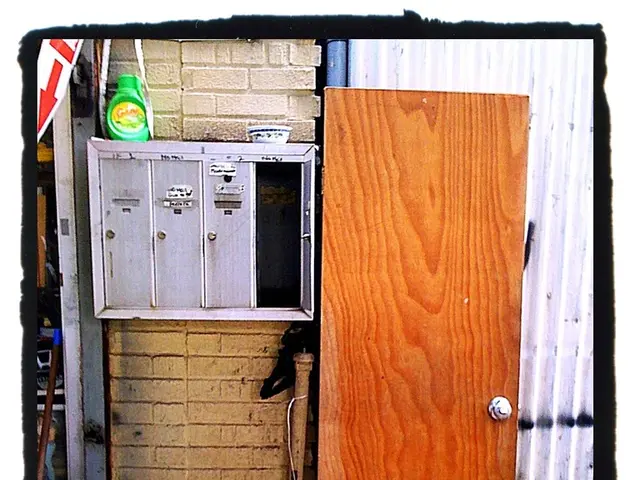Day-to-day activities are progressively being digitized
Article:
International Nurses Day Highlights the Rising Importance of Digitalization in Elderly Care
In commemoration of International Nurses Day on May 12, Caritas, the diocese of Eichstätt's charity association, has emphasized the role of digitalization in nursing. Norbert Bittner, head of Caritas elderly care, previously underestimated the significance of digitalization and artificial intelligence in this sector. Bittner acknowledges the use of robots providing memory training for dementia patients and care robots in Japan for bedridden individuals. However, he stresses that while robots can augment care, they cannot replace human interaction and emotional bonding.
Over the past two years, Caritas has made significant strides in digitalizing its elderly care facilities. Electronic nursing documentation has replaced the traditional paper system in all 20 senior homes across the Eichstätt diocese. Tablets are now used for wound documentation, with photos tracking the healing process and ensuring accuracy and swiftness for discussion among colleagues and doctors. Fluid intake, vital values, and medication administration are also recorded via tablets.
In facilities in Spalt, Berching, and Freystadt, infrared motion sensors have been implemented to minimize the risk of falls among vulnerable individuals. The system installed in at-risk individuals' rooms not only detects when they get up from bed but also connects to the call system, triggering an alarm for caregivers in critical situations. The deployment of these sensors has notably reduced the number of falls.
A 2024 innovation was the introduction of special software for registering new residents in all senior homes and some Caritas social stations. Interested parties can sign up for a waiting list via the homepage or a sent link, directly transferring the collected data to the care documentation system using an interface. The software also digitally queries nursing-relevant data from relatives to facilitate planning individualized nursing care. This streamlines administrative tasks and reduces nursing workloads, allowing for more time devoted to direct resident care.
Future plans include connecting senior homes and social stations, including day care facilities, to the telematics infrastructure. This network will facilitate the secure exchange of relevant health data between healthcare actors. The technical groundwork for this initiative is currently being established in Caritas facilities, with a pilot project underway at the Caritas senior home in Heilsbronn to pave the way for rollout to other facilities.
Bittner predicts that nurses will soon be able to dictate documentation directly onto their smartphones using speech input and AI software assistance. This could potentially save a significant amount of time per shift, approximately half an hour, enabling a greater focus on human attention and care.
However, Bittner cautions against hasty digitalization, as sensitive health data requires stringent security measures, and the introduction and maintenance of digital systems can be costly. Acceptance issues might also arise due to limited familiarity with digital technologies among care recipients and nursing staff. Furthermore, technical dependency could lead to care disruptions in case of system failures.
In conclusion, digitalization in elderly care is an important piece of the puzzle for efficient, personalized, and high-quality care. While Caritas' specific initiatives in Eichstätt might not be fully detailed, the broader trend across the sector demonstrates the potential for technology to transform care delivery. As technology evolves, it is likely that more organizations will adopt comprehensive digital solutions to enhance patient outcomes and operational efficiency.
Additional Information (for context and background):
- The healthcare sector is increasingly focusing on value-based care models that encourage efficient use of digital tools to monitor and improve patient health outcomes.
- Telehealth platforms and AI-powered tools are becoming increasingly popular to provide remote consultations and predict health risks.
- Efficient digital care platforms streamline care processes, automate tasks, and facilitate communication among staff, patients, and families.
- Remote patient monitoring (RPM) is used to manage chronic conditions and reduce hospital readmissions.
- Science has a crucial role in shaping the future of elderly care, with the increasing focus on digitalization and artificial intelligence.
- Workplace wellness is being transformed by the incorporation of digital tools in nursing, aiming to improve productivity and overall care.
- Chronic diseases and respiratory conditions are being managed more effectively withremote patient monitoring (RPM) and telehealth platforms that leverage digital technology.
- Skin care and mental health are also areas where technologies such as therapies and treatments and nutrition supplemented with CBD can play a significant role in maintaining and improving patient health.
- Fitness and exercise, when combined with digital tracking and progress monitoring, can lead to more personalized and effective health and wellness programs for seniors.
- Technology's role in elderly care goes beyond direct patient care, with digital systems aiding in administrative tasks and reducing nursing workloads to free up time for direct resident care.
- When it comes to digitalization in elderly care, it is essential to consider the security of sensitive medical conditions data, the cost of maintaining digital systems, and the acceptance issues that might arise among care recipients and nursing staff.








